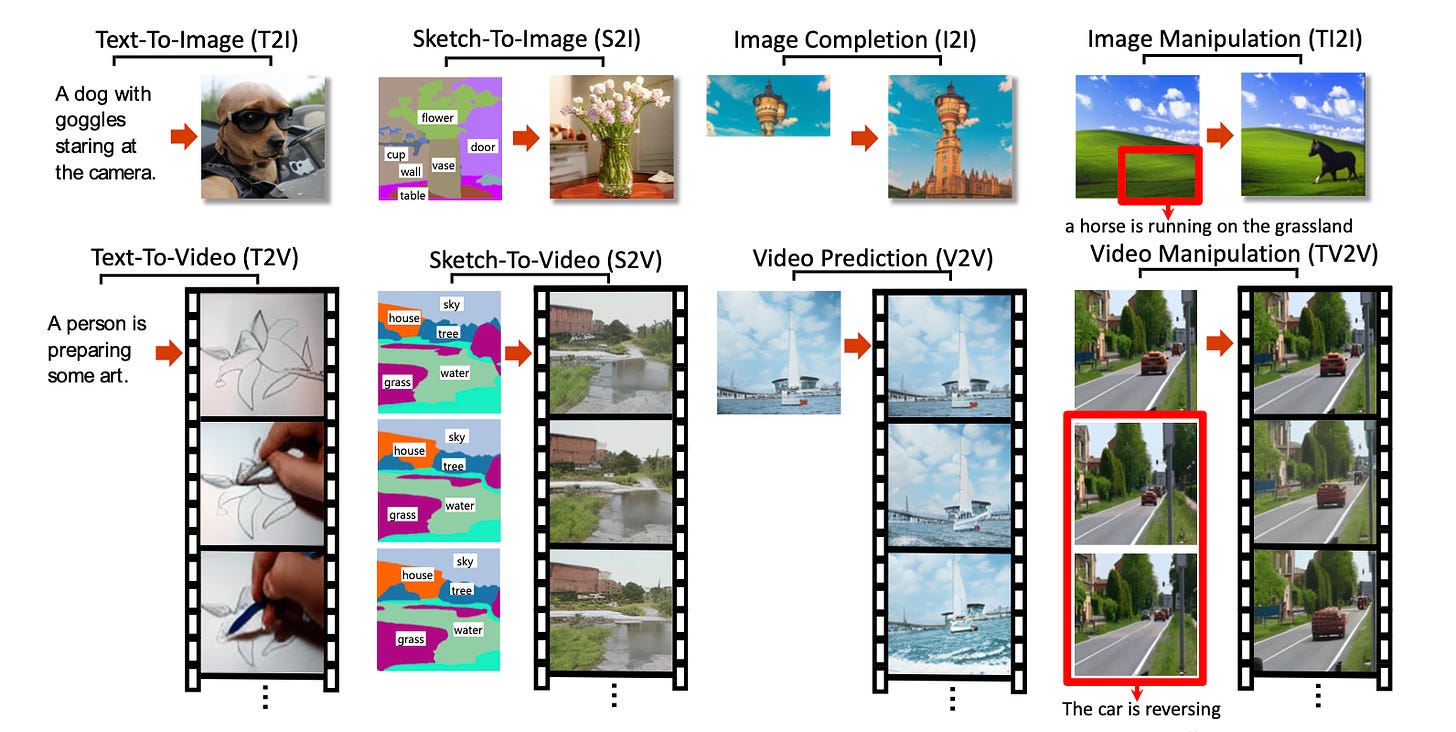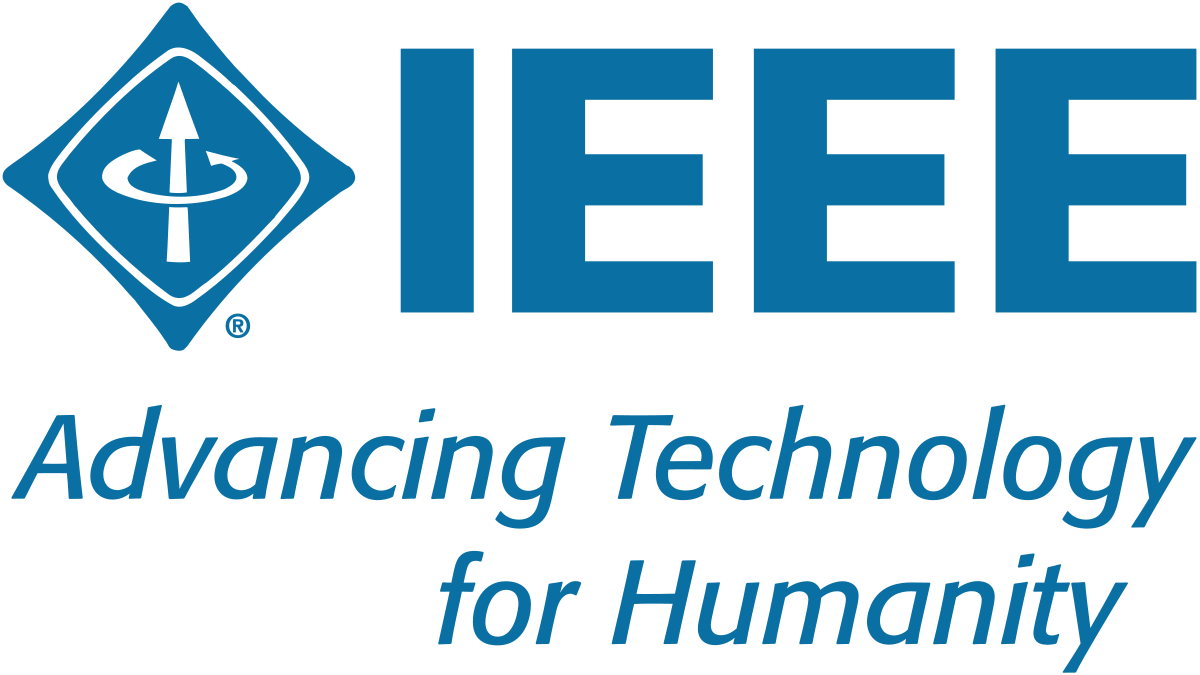NÜWA = GauGAN 2 + DALLE; China Issues Standards for AI Trainers; Newly Elevated IEEE Fellows
China’s AI news in the week of November 28, 2021
NÜWA: A Pre-Trained Multimodal Framework for Visual Synthesis
If you are interested in visual synthesis research, you may follow the recent progress of NVIDIA’s GauGAN AI, which can turn sketches into a convincing landscape, or probably DALLE, which creates images from texts. Now, a team of researchers from Microsoft Research Asia and Peking University proposed a new framework that can master both abovementioned tasks plus six more.
Named NÜWA, the mother goddess of Chinese mythology credited with creating humanity, the framework is essentially a general transformer that consists of an adaptive encoder that takes either text or visual sketch as input - a unified representation method for different modalities of inputs - and a decoder shared by eight visual synthesis tasks.
Text-to-Image (T2I)
Text-to-Video (T2V)
Video Prediction (V2V)
Sketch-to-Image (S2I)
Image Completion (I2I)
Text-Guided Image Manipulation (TI2I)
Sketch-to-Video (S2V)
Text-Guided Video Manipulation (TV2V)
Researchers also proposed a 3D Nearby Attention (3DNA) mechanism in the framework to consider the locality characteristic for both spatial and temporal axes. 3DNA not only reduces computational complexity but also improves the visual quality of the generated results.
Compared to several strong baselines, NUWA achieves state-of-the-art results on text-to-image generation, text-to-video generation, video prediction, etc., and shows excellent zero-shot capabilities on text-guided image and video manipulation tasks.
China Defines Vocational skills for ‘AI Trainers’
The Chinese government has issued a national standard for the vocational skills of AI trainers, according to a new document released by the Ministry of Human Resources and Social Security (MOHRSS).
According to the definition, AI trainers are personnel who “use intelligent training software to perform database management, algorithm parameterization, human-computer interaction design, performance testing and tracking, other auxiliary operations when using artificial intelligence products”. This vocation encompasses data annotator and AI algorithm tester.
AI trainers to be certificiated must complete theoretical knowledge tests, skill evaluation, and comprehensive review. The standard also rates AI trainers in five levels - from L5/Entry to L1/Senior Technician - based on candidates’ abilities in data collection and processing, data annotation, smart system operation, business analytics, training, and smart system designs. For example, data annotation is an important scoring element to assess 50% performance of L1 AI trainer while smart system design represents 40% of the overall score.
From first proposal to final publication, the development of the standard took two years by a joint effort of Vocational Skill Certification Center at MOHRSS, Alibaba, Baidu, iFlyTek, and other organizations.
83 Chinese Elevated to 2022 IEEE Fellows
The IEEE Grade of Fellow is conferred by the IEEE Board of Directors upon a person with an outstanding record of accomplishments in any of the IEEE fields of interest. The total number selected in any one year cannot exceed one-tenth of one- percent of the total voting membership. IEEE Fellow is the highest grade of membership and is recognized by the technical community as a prestigious honor and an important career achievement.
This year, 83 Chinese members with extraordinary contributions deemed fitting are named new IEEE Fellows, 31 of which are computer scientists, including Associate Professor in EE Department at Tsinghua University Yu Wang, Baidu CTO Haifeng Wang, Alibaba Corporate Vice President Feifei Li, Chief Scientist on AI at China Mobile Junlan Feng, Director of the AI Labs of Bytedance Chuanxiong Guo, and others. You can find the full list here.
Investment News
Moore Threads, a Beijing-based graphics processing unit technology firm, has secured RMB2 billion (~$313 million) in its Series A funding round jointly led by Source Code Capital, Shanghai Guosheng Group, and BOC International’s Bohai Sheng Industrial Fund Management. Founded in 2020 by former Global Vice President of NVIDIA Jianzhong (James) Zhang, the company provides GPU computing technology and services to accelerate data centers, edge computing servers, professional workstations, and high-performance personal computing devices.
Cornerstone Robotics, a Hong Kong-based developer of medical robotic devices, has raised RMB500 million (~$78 million) in its Series B funding round jointly led by Lilly Asia Ventures, Longzhu Capital, and New World Development.
NeuraMatrix, a Beijing-based biotechnology company, has raised RMB100 million (~$15.64 million) in its Series A funding round. Founded in 2019, the company develops implantable neural interfaces for neuroscience research and applications.





